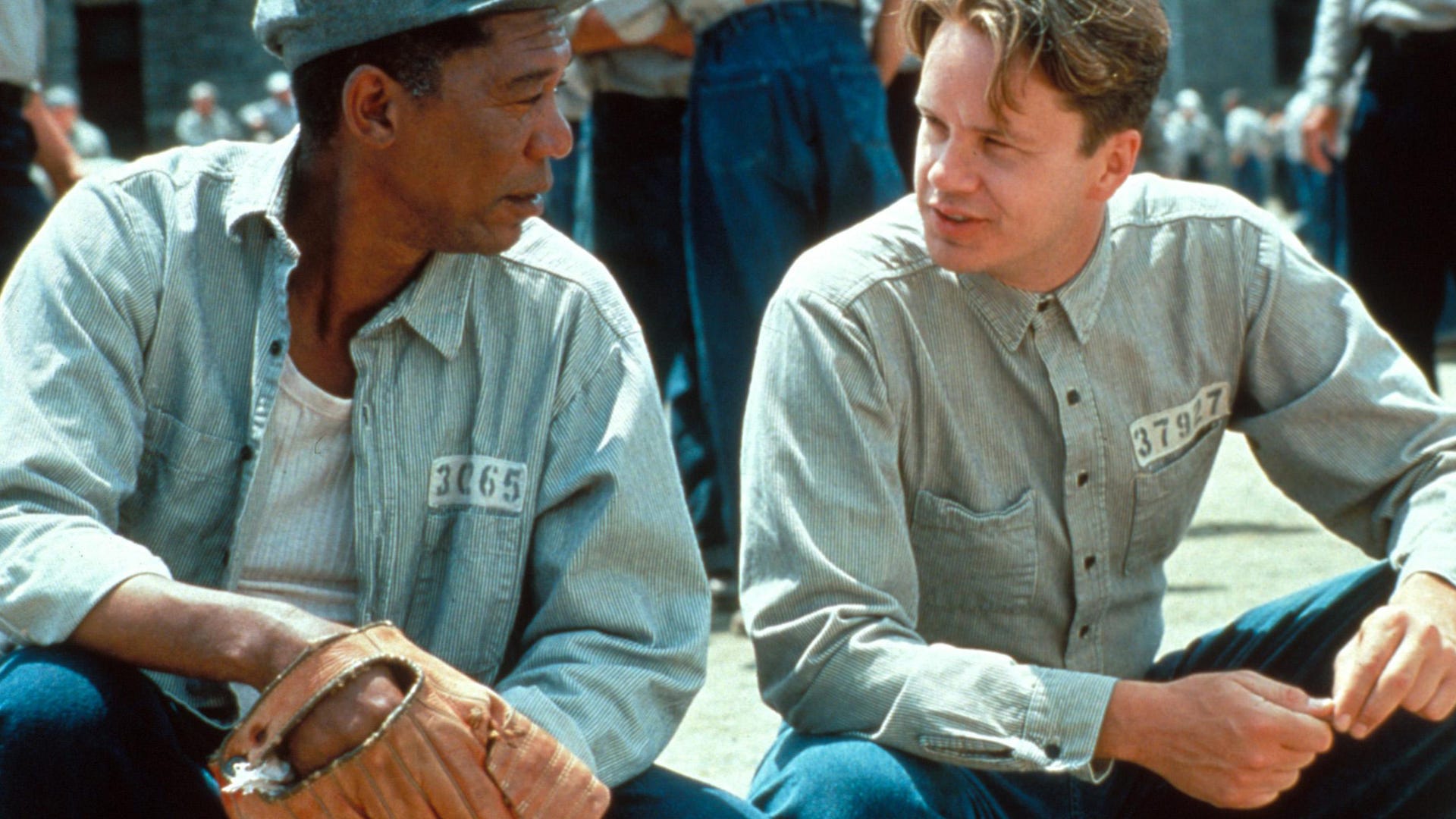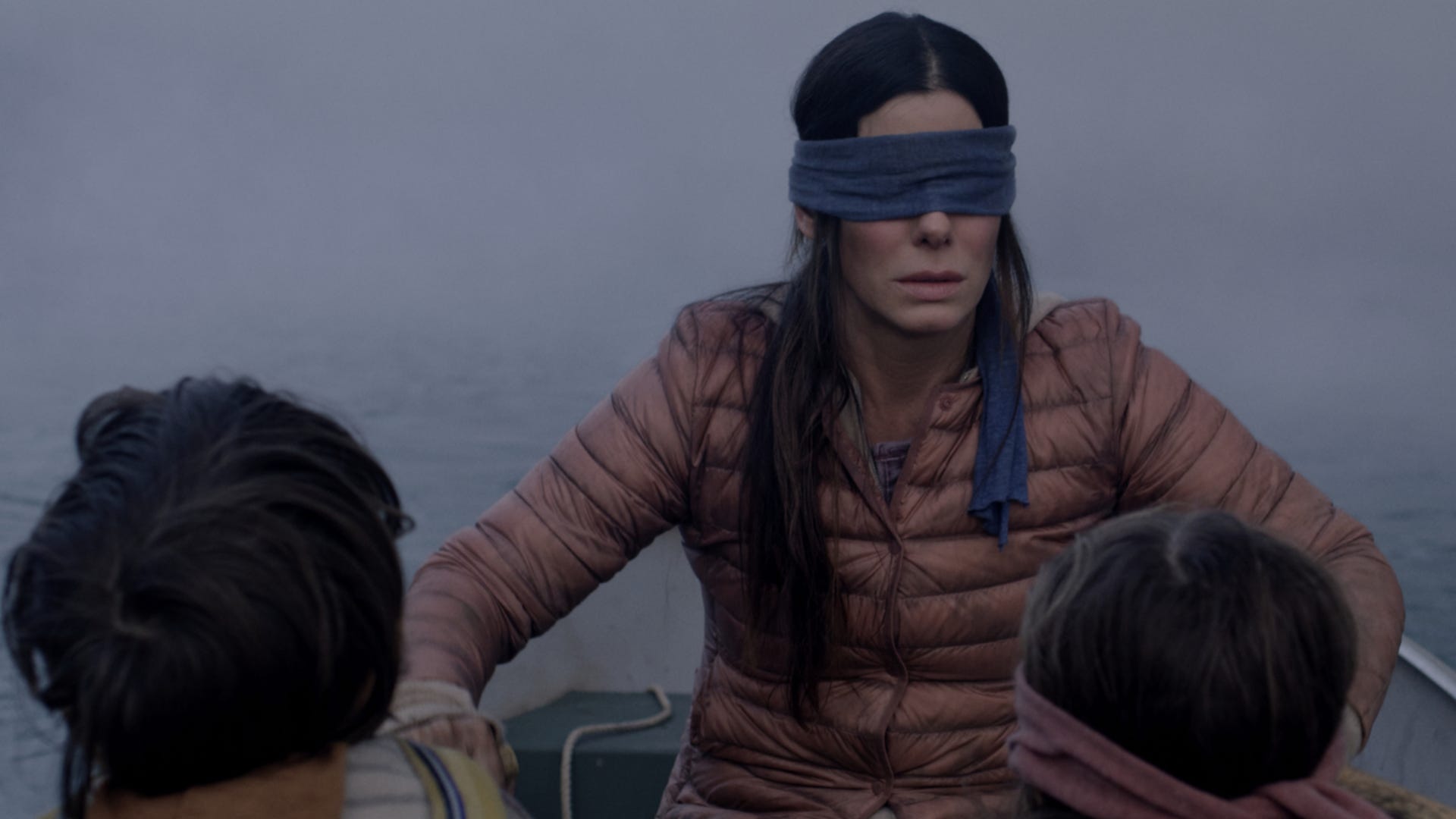Join or Sign In
Sign in to customize your TV listings
By joining TV Guide, you agree to our Terms of Use and acknowledge the data practices in our Privacy Policy.
Sorry Kids, The Days of Stumbling Upon a Great Movie on TV Are Over
Channel-flipping gave life to cinema's best, but on-demand choice has killed that joy
The Shawshank Redemption didn't become a beloved favorite overnight. Released in the fall of 1994, it earned strong reviews (and later several Academy Award nominations) but underperformed at the domestic box office, earning around $28 million. For the sake of comparison, that's $30 million less than one of the films that muscled it out as it went into wide release in October of that year, The Specialist, which twice topped the box office, enticing audiences with the promise of a sexy thriller starring Sylvester Stallone and Sharon Stone. If you haven't heard of it, there's good reason. The Specialist had its moment, then that moment passed. Nothing about the film invited repeat visits. It was watched once then never watched again. Meanwhile, The Shawshank Redemption became immortal.
It's not hard to explain why. For one thing, it's a good movie, and good movies, even those overlooked on first release, tend to find their audiences over time. But some have more help than others. The Shawshank Redemption's fate started to turn around in video stores but its renaissance owes even more to cable. Per a recent Washington Post article on its devoted following, TBS and TNT have aired it over 100 times (a number that sounds low relative to how often it seems like they've shown it). It's a film that has a way of sucking in viewers. Once stumbled across, it casts a spell.
But who stumbles across movies anymore?

There's a particular kind of joy to being accidentally drawn into a movie that won't let go, be it Shawshank, Speed, Can't Hardly Wait, Pretty Woman, Above the Law, Clue, or Hocus Pocus. The Ringer even has a popular podcast devoted to this class of film, The Rewatchables. Though it sometimes adds more recent films to its canon, like Den of Thieves and Gone Girl, the podcast devotes the bulk of its episodes to films that thrived in the golden age of channel-flipping. That might owe something to its hosts having come of age in that era, but that era might also mark the end of the beguiling movie encountered by happenstance.
The streaming era asks choice and deliberation. To watch a Netflix original likeThe Last Summer, in which K.J. Apa plays a Chicago teen enjoying his final days before going to college, is to actively choose to watch it, which involves blocking out the time, searching for it, and hitting play. And who but the most die-hard Riverdale fans would make such a commitment? Netflix famously releases its viewing numbers only selectively so it's hard to tell how many people have seen The Last Summer. Social media, however, makes it easy to see if anyone is still talking about it and a few months later, Last Summer has lost any foothold in the cultural conversation. On cable, it might have been repeated and stumbled across until picking up a following. On Netflix, it lives alone in a dusty little corner. Even Netflix hits, like Bird Box, don't benefit from the second-waves films that aired on cable once enjoyed.
Discover your new favorite show: Watch This Now!
Not that Netflix should be blamed for the death of the cable-created classic. Its decline predates even the advent of streaming services. As DVRs became more popular in the early 2000s, viewers started to enjoy more directed viewing habits. Why see what else was on when you had two episodes of Lost to catch up on? Why flit from channel to channel to see what's playing on Comedy Central or USA when you still haven't gotten to last night's Smallville? Elsewhere, the popularity of DVD box sets introduced the binge-watch to the general public, a habit previously only enjoyed by those who put in the effort to stockpile episodes on videotapes.
Perhaps an even great a hindrance, the channel surfing waters also became a bit choppy. Where pre-DVR, pre-digital cable set-ups allowed viewers to move through channels as fast as their fingers could mash the buttons on the remote, the lag inherent to modern cable systems slow that pace down. The experience of breezing from channel to channel then back again once you reached the end has disappeared. Channel flipping has become a habit only for the most patient.
That makes stumbling across anything difficult even for those who've yet to cut the cord. The menu might let you know that, say, AMC is playing Lake Placid, but seeing a logline and actively choosing to watch an already-in-progress struggle between Bill Pullman and a killer alligator is quite different from happening upon a scene of an alligator eating a bear on a lazy Saturday afternoon and thinking, "Why not? What else do I have going on?"
It's Time to Stop Releasing Full TV Seasons at Once
Movie fans live in a moment of seemingly limitless options. Between streaming and on-demand services, we have a video store's worth of movies at our fingertips at all times. It should be a dream come true. The problem: All that choice can be overwhelming. That's part of why curation and suggestion have become central to the the strategy of specialized services like the Criterion Channel, which features proposed double features and films grouped by theme. Sometimes, you just want to be pointed in the direction of something good you might not have found on your own.
But where does random discovery now enter the picture? Some signs suggest it might come in through the backdoor, via the same streaming technology threatening to make it obsolete. As ought to be expected by a service that describes itself as geared toward "casual and super fans of thrillers, suspense and horror," Shudder features a wide variety of creepy, scary, and otherwise intense movies. It also features "Shudder TV," a group of live channels that are always playing something available somewhere on the service. (Writing this story, I had to pause when I found myself drawn in by the creepy-looking bad guys of the 2015 film Last Shift, which I then saved to watch later.)

Yet nothing replicates the old feeling of staring at a TV filled with channel after channel of possibilities quite like Pluto.TV, a free service founded five years ago (and now owned by Viacom). Available as a website and an app, it looks and feels like a recreation of cable of yesteryear. Flip through -- and, yes, flipping is pretty easy even if it's not quite as fast as in days of cable yore -- and you'll find live channels dedicated to everything from classic Doctor Who to Wahlburgers (the latter an instance of TV channels becoming maybe too specialized). You'll also find one movie channel after another, from stations specializing in westerns to '80s movies to kung fu films. What's playing at any given moment often seems to have no rhyme or reason (though watch the same channel long enough and you'll start to run into the same movies fairly frequently). At any given moment, you might find The Elephant Man playing on the Drama channel opposite Sunset Blvd. on the Classics channel and Bloodfist on Flicks of Fury, movies that might not otherwise have been on your mind that are now at your fingertips, much like when cable was the only option.
That time had its limitations but it also had its unique pleasures, pleasures worth reviving. The other night, after switching over to Pluto.TV to see what was on as the day wound down, I found myself drawn into Paul Thomas Anderson's 1996 debut Hard Eight, a movie I love but hadn't seen in years. Though I had plans to go to bed, its sweeping shots of Philip Baker Hall's world-weary gambler navigating a casino floor in Reno exerted a hypnotic effect. Suddenly, unexpectedly, this movie was back in my world. Sleep could wait. Some movies demand putting the rest of the world on hold no matter how many times you've seen them.